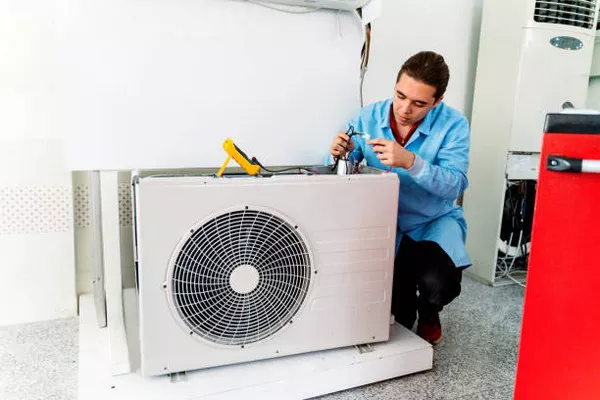Refrigeration compressors, the unsung heroes of cooling systems, are pivotal in orchestrating the circulation of refrigerants. This article unravels the intricacies of various refrigeration compressors, delving into their functionalities, applications, and the dynamic challenges they navigate within diverse operating conditions.
Unveiling the Realm of Refrigeration Compressors:
Refrigeration compressors, distinct from their gas counterparts, play a crucial role within refrigeration systems. They traverse a wide range of suction and discharge pressures, contending with challenges such as refrigerant-induced oil dissolution and the impact of low-temperature aspirated steam carrying liquid drops.
Understanding these challenges provides a glimpse into the intricacies of refrigeration systems, where precision engineering is paramount to ensuring efficiency and longevity in demanding environments.
Piston Power:
Piston-type compressors emerge as the cornerstone of refrigerating machines, showcasing versatility and reliability in meeting the diverse demands of refrigeration systems. Their mechanics reveal a robust structure capable of withstanding the rigors of varied operating conditions.
Exploring piston-type compressors sheds light on their adaptability and efficiency, making them indispensable in applications ranging from industrial refrigeration to commercial cooling systems.
Semi-Hermetic Marvels:
Semi-hermetic compressors stand out as adaptable powerhouses in scenarios requiring large-capacity compact equipment. Capable of developing power up to 350 kW, these compressors, available in piston and screw models, feature a modular design housed in a dismountable casing. This enhances repairability, with an adjustable operating mode adding an extra layer of adaptability.
The semi-hermetic realm reveals a delicate balance between power and flexibility, positioning them as preferred choices in applications where space and efficiency are crucial factors.
Hermetic, Semi-Hermetic, and Open Dynamics:
Refrigeration compressors play a crucial role in the functionality of refrigeration systems, and their structures vary significantly across three main types: hermetic, semi-hermetic, and open compressors. Each type exhibits distinct characteristics, advantages, and optimal applications, providing a tailored approach to diverse refrigeration needs.
Hermetic Refrigeration Compressors: Efficiency in a Compact Package
Hermetic compressors represent a compact and efficient design where both the electric motor and the compression unit are enclosed within a single sealed housing. The direct cooling by the refrigerant enhances efficiency, making these compressors economical and space-efficient. Despite their advantages, hermetic compressors typically have a relatively modest capacity, with an upper limit of around 35 kW.
Semi-Hermetic Refrigeration Compressors: Power with Adaptability
Semi-hermetic compressors strike a balance between hermetic and open systems, featuring a dismountable casing that houses both the working components and the electric motor. This design provides a degree of adaptability, enabling adjustments to the operating mode by selectively closing suction valves. Semi-hermetic compressors can develop substantial power, reaching up to 350 kW.
Open Refrigeration Compressors: Versatility in Design
Open compressors feature a separate housing for the electric motor and compression unit, providing easy access to internal components. These compressors are known for their larger capacity and versatility in design. The open construction allows for efficient cooling and heat dissipation, making them suitable for heavy-duty applications.
Screwing Up the Norms:
Screw compressors take center stage, offering one or two-rotor machines with a constant geometric degree of compression. Divided into dry and oil-filled types, these compressors inject a significant amount of oil into the working cavity to reduce noise levels. Their advantages span high-speed operation, compact dimensions, steady performance, and automation capabilities, while challenges include noise concerns and the necessity for cooling at elevated pressure.
Exploring the intricate workings of screw compressors reveals a delicate balance between efficiency and noise reduction. Their adaptability to varying operational conditions positions them as versatile solutions for applications demanding precision and reliability.
See Also: How Much Does It Cost To Replace An Ac Compressor?
The Scroll Saga:
The final frontier explores scroll-type compressors, employing two spirals for pumping – one stationary and one in motion. Primarily used for compressing oil-free gases, these compressors present advantages such as reduced motor load during startup, effective engine cooling, uniform gas supply, high reliability, and decreased noise levels. However, the discussion acknowledges challenges like complex manufacturing processes and relatively lower productivity.
The innovative design of scroll-type compressors showcases a unique approach to refrigeration compression. While presenting advantages in specific applications, their limitations highlight the need for a nuanced selection process based on the specific demands of the task at hand.
Conclusion:
In conclusion, this panoramic journey through the realm of refrigeration compressors not only sheds light on their diversity but also serves as a testament to their evolving role in the ever-changing technological landscape. As the quality of spiral compressors surges, the future promises a shift towards more reliable systems, marking a new era of efficiency and innovation in refrigeration technology.
Understanding the intricacies of each compressor type empowers industries to make informed decisions, ensuring optimal performance and longevity of refrigeration systems. The evolving landscape of refrigeration technology beckons a future where advancements continue to redefine efficiency, sustainability, and precision in the cooling industry.

